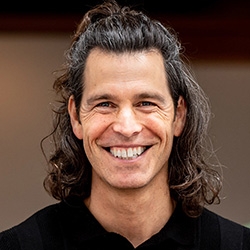

Search Results: practices
-
Ask the Trainer: Get guidance on working with enemy images and exercises that bring relief.
-
Listen and learn how to:
- Talk about NVC in a way that has meaning and relevance for companies and organizations, showing a clear ROI (return on investment).
- Draw on different applications of NVC for the workplace: addressing change in management, management issues / styles, morale / teamwork, employee retention, etc.
- Create a value-based training proposal (with different service and product options) based on the needs of each specific client.
- Structure meetings with potential clients to move agreements forward.
- Custom design any materials, activities and languaging for each client.
- Develop your own marketing materials to increase your outreach and build your business of sharing NVC
-
- Discover how to figure out what you really want, then how to ask for it
- Learn how to make requests with ease and how to guess the requests of others
- Practice strategies for turning ‘demand energy’ into ‘request energy’
- Be able to stand firmly for your needs and assertively ask for what you want
-
When deciding if someone crossed your boundaries and how to respond, you may get conflicting opinions on it. These opinions can be coarse attempts to manage life with rules about what should(n’t) happen. Instead, so that you can find where you want to invest your energy, ask yourself questions that reveal what for you is truly in integrity, nourishing, connects to your heart, and deepens self understanding. Read on for examples.
-
“The Embodied Spirituality of Nonviolent Communication” is an introduction to NVC created from recordings of trainings Robert Gonzales offered in Hawaii in 2007 on the islands of Maui and Kauai.
This collection is a celebration of Robert's life and one way we can honor his outstanding work.
The original product was a set of DVDs. NVC Academy has converted the original 3 DVD set into 5 mp4 videos. We have taken care to preserve the original product while simultaneously upgrading to HD video and remastering the audio in this new mp4 format.
-
- Discover how mediation is a fundamental social skill that everyone can learn
- Gain the skills to stay centered when a conflict becomes heated
- Learn how to lead a dialogue toward sustainable agreements
- Help facilitate connection and creativity to discover and meet everyone’s needs
-
CNVC Certified Trainer, Yoram Mosenzon has a vision… he sees mediation as a basic life skill that could be taught in schools starting at the age of three. He dreams of a world where all human beings have mediation skills to support understanding, cooperation, and connection when conflicts arise.
-
These mindful inquiry exercises and tips are for enhancing self-empathy, and empathy for others. Using emotions and needs card decks provided, learn to reflect and enhance trust and connection through intentional practice.
-
- Discover how to bring resonance into your conversations with others
- Learn how resonant language and NVC empathy come together
- Practice consent and saying “no”, even when it is difficult
- Feel the movement into more intimacy in your relationships!
-
When Marshall designed NVC, he said that the purpose of it was to create a quality of connection, that inspires compassionate giving and receiving. The zero step is awakening or remembering your intention to support compassionate giving and receiving. Do this practice exercise to awaken this intention and to roleplay with it in your heart.
-
Without self-acceptance any attempt at growth and transformation, even while parenting, can easily become a path to self-judgments and another yardstick against which to measure ourselves as falling short. Instead, we can practice 1 minute a day or more, or while doing other tasks, to develop the self-compassion and self-acceptance needed to grow both new habits and our capacity to meet our children with calm and compassion.
-
Setting boundaries takes being firmly grounded in self-respect and clear about what works for you. This means making conscious choices about how you relate to another or behave in a situation. Such clarity allows you to put your attention and energy where you want it to go. Thus we can have care and compassion without taking responsibility for others, nor feeling guilty when we say “no”. This takes awareness, skills, practice, healing and compassion.
-
There are ways to reduce obstacles to setting boundaries. Notice unconscious ways you sacrifice yourself in order to avoid boundary setting. List of signs that a life-serving boundary is needed, but you're denying this. Realizing you consistently abandoned your needs may require time to process and mourn before you can set boundaries consistently. With practice, you can recognize boundaries care for yourself and others.
-
An anchor is something you turn your attention toward in order to interrupt reactivity and access a non-reactive, expansive perspective. Though it doesn't make the reactivity go away, it allow you the internal space to choose to not behave from reactivity. In this practice exercise learn more about anchors, plus how to create and use them.
-
- Learn, practice, and integrate the basic components of NVC
- Understand how to use observations, feelings, needs, and requests
- Grow your communication skills and strengthen your relationships
- Discover how to express yourself honestly and authentically!
-
Part of making your relationship a priority while maintaining autonomy means you consider the impact your actions may have on your relationship and look to negotiate ways all needs can be honored. To do this while not losing yourself, practice writing down your needs and guessing their needs beforehand. Make an upfront request to create a shared understanding about what’s most important, before discussing strategies or decisions.
-
It can seem like anger protects you. But it's your ability to name your needs, honor your range of feelings, and act on your needs that keeps you healthy and safe. When you remain present for an emotion and allow it to flow, it'll last just over a minute and dissolve, making room for the next layer of experience. Practice noticing any anger you have, without resistance. Set up self-empathy or space be heard empathically.
-
Blame is a misguided habit that's used to avoid pain and suffering, offering only a momentary distraction and oversimplifies complex histories. It also disconnects us from choice and agency, blocks us from discovering more about ourselves and others, and can keep us from having compassionate, self responsible conversations. Instead, we can practice speaking in terms of impact and notice our experience without trying to escape it.
-
-

Quick Links
Subscription Preferences
Stay In Touch!
Looking for ways to keep up with NVC Academy news, get special offers, free resources, or words of inspiration? Here are five ways to stay engaged:


















